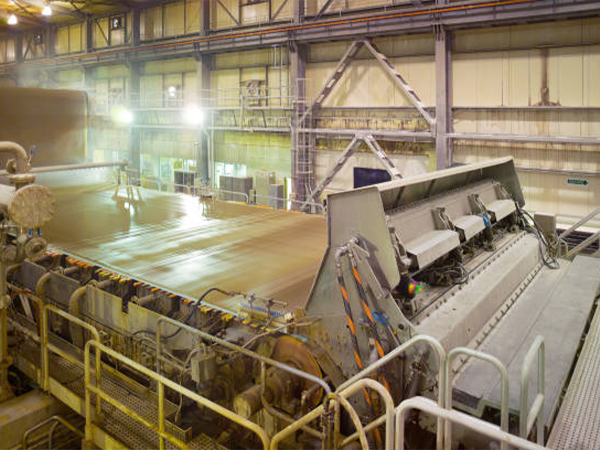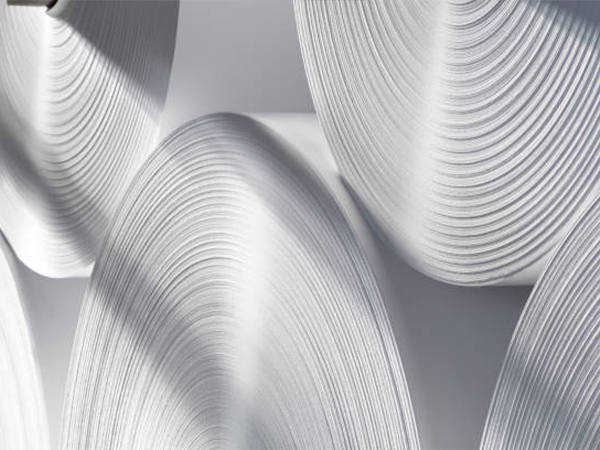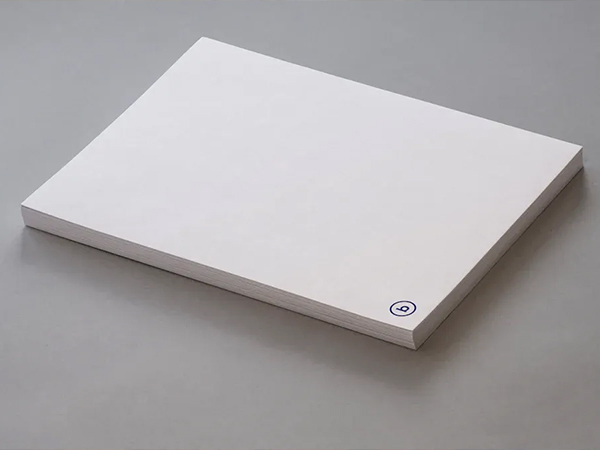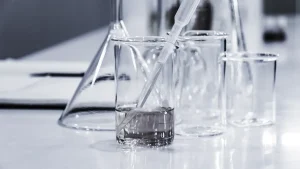
You see PolyDADMAC Improves Retention and drainage by acting as a powerful wet-end additive. Its cationic polymer structure enables strong electrostatic interactions with pulp fibers, leading to enhanced efficiency and sustainability.
- Paper mills worldwide report:
- 12–18% higher first-pass retention
- Zero liquid discharge achievements
- Over 78,000 metric tons used in Europe (2024)
| Aspect | Detail |
|---|---|
| Chemical Structure | PolyDADMAC is a cationic polymer, poly(dimethyl-diallylammonium chloride). |
| Interaction Mechanism | Electrostatic adsorption on fiber surfaces, especially tangled fibrils. |
Key Takeaways
- PolyDADMAC enhances retention by forming strong electrostatic bonds with pulp fibers, improving the quality of paper products.
- Using PolyDADMAC leads to faster drainage, reducing water removal time and lowering steam consumption during drying.
- This cationic polymer supports sustainability by requiring low dosages, minimizing chemical usage, and improving water efficiency.
PolyDADMAC Improves Retention
Mechanism
You can see how PolyDADMAC Improves Retention by understanding its unique mechanism at the wet end of the papermaking process. The cationic polymer structure of PolyDADMAC allows it to interact directly with the negatively charged surfaces of pulp fibers and fine particles. This interaction neutralizes surface charges and promotes the aggregation of particles, which leads to improved retention.
PolyDADMAC improves the retention of fillers and fine particles in papermaking through its electrostatic interactions and flocculation properties. It acts by neutralizing negative surface charges, facilitating bridging adsorption between the polymer and suspended colloidal particles, which enhances the bonding of fillers to fibers.
When you add PolyDADMAC to the pulp slurry, it forms strong electrostatic bonds. These bonds help bridge fibers and fine particles, creating larger flocs that resist shear forces during the papermaking process. This mechanism ensures that more fillers and fines remain in the paper sheet, rather than being lost in the white water.
The molecular weight of PolyDADMAC also plays a crucial role in its performance. Higher molecular weights enhance both retention and drainage efficiency, making it suitable for a wide range of papermaking and water treatment applications.
| Aspect | Description |
|---|---|
| Molecular Weight Range | Ranges from hundreds of thousands to a million grams per molecule. |
| Performance Impact | Higher molecular weights enhance retention and drainage efficiency. |
| Application Areas | Used in papermaking and water treatment processes for improved quality. |
Filler and Fine Particle Retention
You rely on fillers like calcium carbonate and clay to improve paper properties and reduce costs. PolyDADMAC Improves Retention by increasing the electrostatic attraction between these fillers and the cellulose fibers. This stronger interaction leads to better retention of both fillers and fine particles, which directly impacts the quality and efficiency of your papermaking process.
- PolyDADMAC is a cationic retention aid that enhances the retention of fillers like calcium carbonate and clay in the papermaking process.
- It works by increasing the electrostatic forces between fibers and fillers, improving their interaction.
- This leads to better retention of fine particles and improved drainage efficiency during paper production.
You also benefit from the formation of larger, shear-resistant flocs when you use PolyDADMAC in combination with microparticle systems. These flocs withstand the mechanical stresses of the papermaking process, ensuring consistent retention and improved sheet formation.
| Mechanism | Description |
|---|---|
| Charge Neutralization | PolyDADMAC neutralizes charges on particles, facilitating their aggregation into larger flocs. |
| Charge-Patch Interaction | Interactions between charged sites on particles and PolyDADMAC enhance floc formation. |
| Particle Bridging | PolyDADMAC acts as a bridge between particles, increasing floc size and strength for better sedimentation. |
You should also consider the optimal dosage for your application. Technical guidelines recommend using PolyDADMAC at 0.1–0.5% of dry fiber weight as a retention aid. This range provides effective performance without excessive chemical use.
| Application | Typical Dosage |
|---|---|
| Papermaking Retention Aid | 0.1–0.5% of dry fiber weight |
Comparison to Other Retention Aids
When you compare PolyDADMAC to other retention aids, you notice several advantages. PolyDADMAC Improves Retention more efficiently, often requiring lower dosages than alternative products. This efficiency reduces chemical costs and minimizes sludge production, which supports your sustainability goals.
| Feature | PolyDADMAC | Other Retention Aids |
|---|---|---|
| Retention Efficiency | High | Varies |
| Typical Dosage | 1 to 15 mg/L | Higher than PolyDADMAC |
| Sludge Production | Lower | Higher |
You also see improvements in the mechanical properties and final quality of your paper products:
- PolyDADMAC enhances the quality of paper products by improving retention and dewatering processes.
- It controls disturbing substances in the papermaking process, leading to better mechanical properties.
- The use of PolyDADMAC improves the efficiency of disk filters and flotators, contributing to the final quality of the paper.
When you integrate PolyDADMAC with other wet-end additives, you should always confirm compatibility through small-scale tests. The amount of dry and wet strength agents, as well as the coordination with your production process, can influence the final outcome.
| Aspect | Details |
|---|---|
| Addition Amount | The amount of dry and wet strength agents should be based on paper type, fiber materials, and production process. Improper amounts can negatively affect paper quality. |
| Compatibility | Different manufacturers’ agents may react chemically, so compatibility should be confirmed through small-scale tests before large-scale application. |
| Production Process | Coordination with the production process is essential; unsuitable conditions can impact paper quality and performance. |
By understanding these factors, you can maximize the benefits that PolyDADMAC Improves Retention brings to your papermaking operation.
Drainage and Operational Benefits
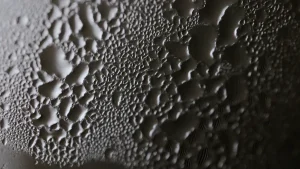
Faster Drainage
You experience faster water removal when you add PolyDADMAC to your papermaking process. This cationic polymer acts as a drainage aid, especially on the wire section of the paper machine. The result is a significant acceleration of water drainage, which directly impacts your production rates.
- PolyDADMAC accelerates water drainage on the wire section.
- Faster drainage reduces the time required for water removal.
- You benefit from lower steam consumption during drying.
When you control anionic trash in high-yield pulp, you further improve drainage properties. This leads to shorter drainage times and more efficient fiber fines and filler retention. These improvements help you increase your production rates and maintain consistent paper quality.
- PolyDADMAC Improves Retention and drainage, which supports higher machine speeds.
- Enhanced retention means less material loss and better sheet formation.
Tip: Faster drainage not only boosts your output but also helps you save energy by reducing the need for steam in the drying section.
Efficiency and Sustainability
You achieve greater efficiency and sustainability by using PolyDADMAC in your operations. This polymer works effectively at low dosages, which minimizes your chemical footprint. You capture more fibers and fillers, so you use water more efficiently and reduce waste.
- PolyDADMAC requires low dosages for effective performance.
- You minimize chemical usage, which lowers operational costs.
- Improved retention and drainage lead to better water usage efficiency.
You can see the impact of molecular weight on performance. Higher molecular weights provide greater flocculation efficiency, which means you need less chemical to achieve the same results. This efficiency supports your sustainability goals and helps you meet regulatory requirements.
- Studies show that higher molecular weights of PolyDADMAC deliver better flocculation.
- Improved flocculation reduces the amount of chemical needed.
- You achieve better water treatment outcomes with less environmental impact.
Note: By optimizing your PolyDADMAC dosage, you can balance cost savings with environmental responsibility.
System Cleanliness
You maintain a cleaner papermaking system when you use PolyDADMAC. This polymer acts as a fixing agent, a retention and drainage aid, and a charge neutralization agent. Each role helps you reduce the accumulation of deposits and contaminants.
| Role | Description |
|---|---|
| Fixing agent | Helps in fixing pitch, stickies, and anionic trash |
| Retention and drainage aid | Enhances fiber and filler retention on the paper machine wire |
| Charge neutralization agent | Balances the anionic charges from pulp and additives |
You notice fewer deposits and less buildup on your equipment. This leads to less downtime for cleaning and maintenance. Cleaner systems also improve the consistency and quality of your final paper products.
Cleaner systems mean fewer interruptions and higher reliability in your production process.
You gain multiple advantages by using PolyDADMAC in papermaking.
- You improve fiber bonding, paper strength, and printability.
- You reduce chemical usage and support sustainability.
- You enhance recyclability and system cleanliness.
| Benefit | Description |
|---|---|
| Efficiency | Faster drainage, higher machine speed |
| Sustainability | Lower toxicity, minimal environmental impact |
| Paper Quality | Stronger, more stable, and more recyclable paper |
For best results, follow manufacturer guidelines, optimize dosage, and ensure safe handling in your mill.
FAQ
What is the best way to add PolyDADMAC to your papermaking process?
You should add PolyDADMAC directly to the pulp slurry. This method ensures even distribution and maximizes retention and drainage benefits.
Can you use PolyDADMAC with other wet-end additives?
You can combine PolyDADMAC with other additives. Always run small-scale tests first to confirm compatibility and avoid negative effects on paper quality.
Is PolyDADMAC safe for your mill workers and the environment?
PolyDADMAC has low toxicity. You should follow manufacturer safety guidelines and use recommended dosages to protect workers and support sustainability.
☑️ Tip: Always wear protective equipment when handling chemicals.

